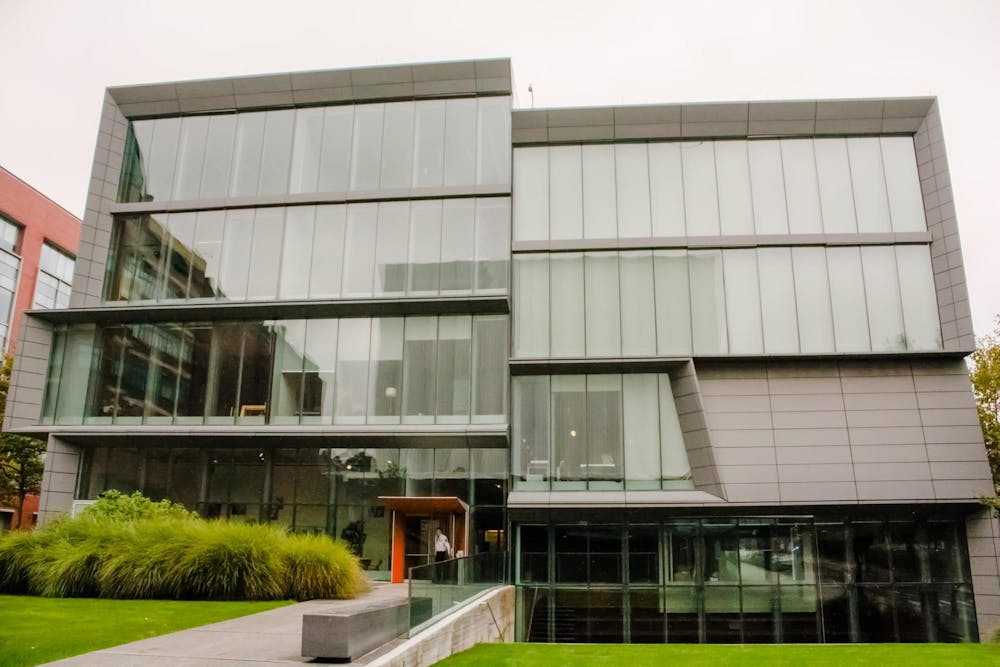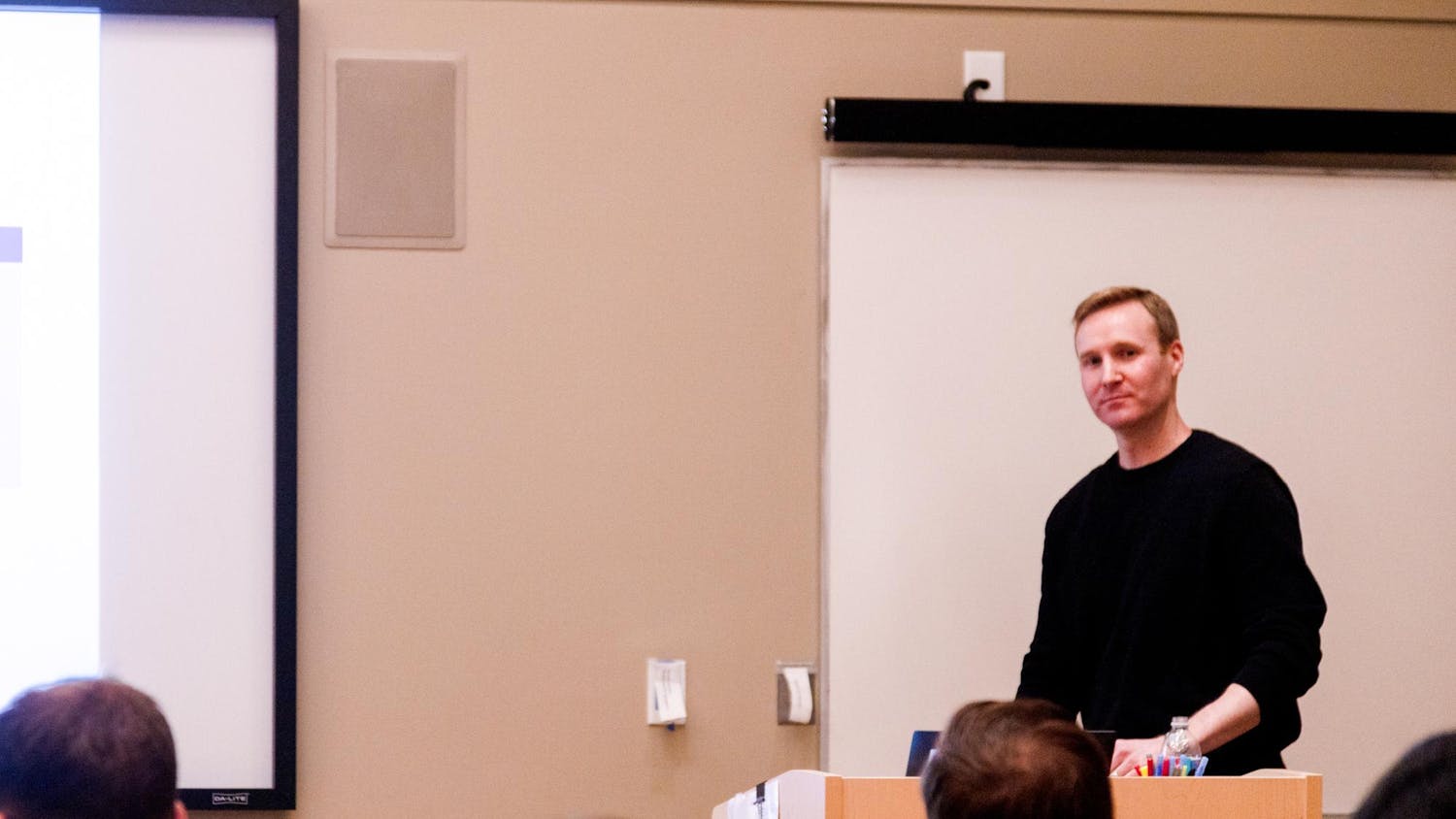On Nov. 6, the projector in the Martinos Auditorium of the Granoff Center for Creative Arts lit up with the sharp, colorful scenes of Lemohang Jeremiah Mosese’s film “This is Not a Burial, It’s a Resurrection.” The film follows the story of a woman named Mantoa, an 80-year-old widow who fights to protect her village in Lesotho from the construction of a dam.
The feature film was the first event in “The Precarity of African Spectacle” film series, organized by the Racial Ecologies Collective. The series will present films from “across the African continent and diaspora” that aim to address the social, political and ecological consequences of “capitalism and coloniality,” according to the event’s description.
“The film series programs narratives by filmmakers who offer a critical attunement to contemporary
African life,” REC member Luvuyo Nyawose GS said in his curatorial statement. The films “do not exceptionalize their point of view but rather ask us to sit with complex questions, not in search of coherent answers.”
The REC is the product of HMAN 2401Q: “Racial Ecologies,” a seminar taught in spring 2023 by Modern Culture and Media Chair and Professor Macarena Gómez-Barris and Theatre and Performance Studies Chair and Professor Jayna Brown. According to the course description, the seminar focused on exploring “the capitalist and consumer climate emergency by attending to local and planetary disasters,” and asking “if this emergency is the inevitable outcome of the Western onto-epistemic regime.”
Before the start of the event, Isaac Essex GS thanked the members of the seminar for making the “conceiving of tonight possible.”
Before the screening, Essex asked: “How do those dispossessed, held captive and stolen by slavery, colonialism and genocide seek refuge in their natural landscapes? How do they reshape their environments? What does it mean to witness assertions of place-making practices?”
Following the curatorial statement by Nyawose, the event screened “Tsutsué,” a 2022 short film directed by Amartei Armar. The film focuses on the grieving process of the sons of a fisherman who lost their brother on a fishing expedition. Opening with a scene of two brothers, Sowah and Okai, playing in a landfill bordering the ocean in a small Ghanaian town, “Tsutsué” depicts the intersection of environmental and emotional stress.
“This is Not a Burial, It’s a Resurrection” similarly portrays the impact of industrialization and colonialism upon an individual’s emotions and culture.
“These films present so much aesthetic and conceptual thinking about the intrinsic relationship between race and environmental crisis,” Katerina Ramos-Jordan GS, one of the approximately 40 event attendees, wrote in an email to The Herald.
The next two events in the film series — which will take place Nov. 13 and 20, respectively — will showcase a short film, feature film and question-and-answer session with the director of the feature film, followed by a small reception for audience members. Each film is tied to “the precarity of African spectacle,” Nyawose explained.
“When discussing the African continent, precarity underscores many events: the past-yet present history of slavery, imperialism and colonialism, the (unsureness) of decolonization, how it happened (and) whether it's still happening,” he emphasized in his opening statement.
Combined with spectacle — a pervasive and all-encompassing medium through which contemporary life is constructed, according to Nyawose — each film aims to offer “meditations on the concepts of homeland and personhood, imposed visibility and invisibility drawn from various registers of archives.”
The film series is co-sponsored by the Brown Arts Institute IGNITE series, which was launched Oct. 21 alongside the opening of the Lindemann Performing Arts Center. The IGNITE series aims to spotlight “a diverse array of offerings from across our Brown Arts ecosystem,” according to the project’s website.
While planning the event, REC discussed “the scope of the film series, what we wanted it to showcase, whose work we wanted to highlight and how they would be drawn together in a way that would speak to each other,” Essex wrote in an email to the Herald.
In addition to the screenings, the collective plans to host talks, performances and workshops to further explore structures of colonialism and artistic responses to environmental and social turmoil. The Nov. 13 screening will feature the short film “Lizard,” directed by Akinola Davies Jr., followed by the feature film, “Milisuthando,” directed by Milisuthando Bongela.

Hadley Carr is the senior editor of digital product and technology of The Herald's 136th Editorial Board.





